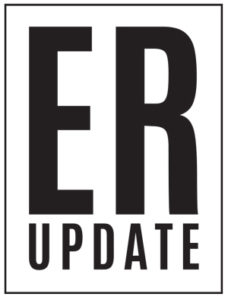Wage Theft Legislation
On 9 September 2020 the Queensland Parliament passed the Criminal Code and Other Legislation (Wage Theft) Amendment Bill 2020. This introduces Wage Theft as a criminal offence in Qld.
The laws came into force on 14 September 2020.
The Criminal Code and Other Legislation (Wage Theft) Amendment Act 2020 (the ‘Wage Theft Act’) amends the definition of stealing in the criminal code to include employee payments and entitlements as something that is able to be stolen. This allows the prosecution of wage theft as an offence of stealing.
What is wage theft is not defined in the Wage Theft Act however it is intended to capture a broad range of payments and entitlements, including:
- Unpaid hours or underpayment of hours
- Unpaid penalty rates
- Unreasonable deductions
- Unpaid superannuation
- Withholding entitlements
- Underpayment through intentionally misclassifying a worker including an employer applying the wrong award (when another one more relevantly applies to the employment), the wrong classification, or by ‘sham contracting’ (making a person a contractor when they are really an employee) and the misuse of Australian Business Numbers
- Authorised deductions that have not been applied as agreed
The Wage Theft Act is not intended to include an employer’s unintentional mistake, or an honestly held belief that payments made to an employee were correct.
The maximum penalty for stealing by employers is 10 years imprisonment and 14 years imprisonment for fraud by an employer.
Criminal wage theft is the Queensland Police Service’s (QPS) jurisdiction and a complaint of criminal wage theft can be made to the QPS by completing a wage theft report form. A complaint to the QPS might not result in recovery of unpaid wages for an employee and therefore might be run before, concurrently or after alternative civil recovery action ie the Fair Work Ombudsman or through court proceedings.
A complaint of criminal wage theft can only be in relation to an offence occurring after 14 September 2020. Any complaints of wage theft occurring before this date can still be pursued through the other existing avenues, ie the Fair Work Ombudsman or through court proceedings.
Other amendments in the Wage Theft Act
The Wage Theft Act also amends the Industrial Relations Act 2016 to allow the Queensland Industrial Magistrates Court to perform the functions of an eligible court in relation to claims under the Fair Work Act 2009. Previously these claims were (and still can be) heard by the Federal Court or Federal Circuit Court.
This means that claims by National System Employees (covered by the Fair Work Act 2009) can be made to and heard by the Industrial Magistrates Court, in what has been slated as a simple and low cost method of resolving a wage or underpayment claim.
Where the amount of the claim is less than $20,000, the small claims procedure in the Fair Work Act 2009 can be utilised, meaning that the court proceedings will be informal and will not be bound by the ordinary rules in relation to procedure and evidence.
In addition, a claim to the industrial magistrate’s court can and will likely be referred to conciliation before proceeding to a court hearing. This conciliation will be conducted by an Industrial Commissioner of the Queensland Industrial Relations Commission.
What do employers need to do
While the Wage Theft Act is new, and its unclear at this early stage how widely either the QPS or the Industrial Magistrates Court will be utilised, now more than ever employers need to ensure they are paying employees correctly and need to seek out information on the correct wages and entitlements of employees.
While the wage theft jurisdiction is not intended to capture honest mistakes it’s likely that prosecutions for employers that are intentionally ignorant of the correct wages and entitlements will follow.
QHA members seeking more information or wishing to discuss a specific employment relations matter are encouraged to contact the Employment Relations Department for a confidential discussion by calling (07) 3221 6999 or emailing er@qha.org.au.

